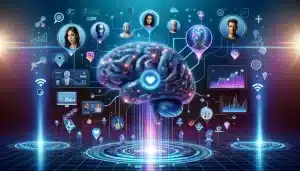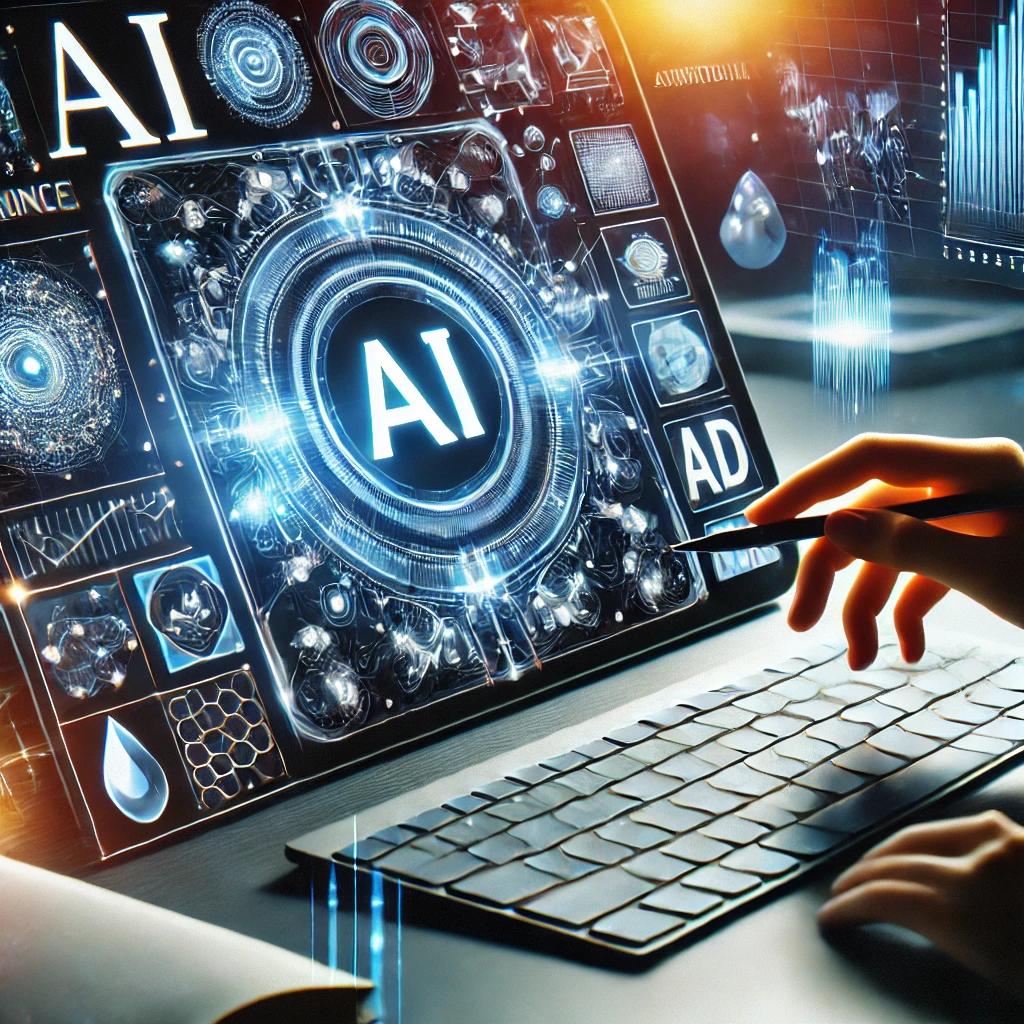In today’s digital-first world, influencer marketing has become an indispensable tool for brands seeking to connect with their target audiences. With the rise of social media, influencers wield significant power in shaping consumer opinions and driving purchasing decisions. However, the challenge lies in finding the perfect influencers—those who align with a brand’s values, resonate with its audience, and deliver measurable results.
Traditional methods of influencer selection often rely on superficial metrics such as follower counts or engagement rates. While these factors are important, they don’t paint a complete picture of an influencer’s potential impact. Enter AI: a transformative technology that is revolutionizing influencer marketing by introducing a data-driven, efficient, and scalable approach.
This article explores how AI is reshaping influencer selection, optimizing campaigns through predictive analytics, and enhancing personalization to deliver maximum impact and ROI.
How AI Is Changing Influencer Selection
Streamlining Influencer Analysis
Traditionally, selecting the right influencer required hours of manual research. Marketers would sift through profiles, evaluate follower counts, and analyze engagement rates. While helpful, these metrics alone don’t guarantee success. Many influencers boast large followings but fail to connect with their audience authentically. This is where AI steps in to revolutionize the process.
AI can analyze vast amounts of data in a fraction of the time, evaluating influencers on multiple dimensions:
- Audience demographics: AI determines whether an influencer’s followers match the brand’s target audience in terms of age, gender, location, and interests.
- Engagement quality: It distinguishes genuine interactions from bot-generated activity, ensuring influencers have authentic connections with their followers.
- Content style: AI evaluates whether an influencer’s tone, style, and aesthetic align with the brand’s image.
- Sentiment analysis: By analyzing comments and interactions, AI gauges audience sentiment toward the influencer’s content, including sponsored posts.
Example: A fitness brand looking for influencers to promote a new product could use AI to identify individuals with an audience genuinely interested in health and wellness. By analyzing audience sentiment, AI ensures that the influencer’s followers respond positively to similar promotions.
Reducing Risks with Data-Driven Decisions
AI minimizes risks by providing a deeper understanding of an influencer’s audience and their compatibility with the brand. Traditional methods might prioritize influencers with high follower counts, but AI prioritizes relevance and authenticity, ensuring that marketing dollars are spent wisely.
Predictive Analytics and Campaign Success
Forecasting Results with Predictive Analytics
AI also leverages predictive analytics to forecast the potential success of an influencer partnership. By examining past campaigns, AI can identify patterns and predict which influencers are likely to drive the best results for a specific brand. This foresight enables marketers to make data-driven decisions, reducing the risk associated with influencer marketing investments.
Key advantages include:
- Identifying high-performing influencers: AI evaluates an influencer’s past campaigns to predict their potential success with a specific brand. Metrics like conversion rates, click-through rates, and engagement are used to forecast outcomes.
- Simulating campaign performance: AI can test different campaign variables—such as content type, posting schedule, and messaging style—to determine the best combination for maximum impact.
Example in Action
Imagine a beauty brand planning a product launch. AI could analyze previous influencer collaborations to determine which content formats—tutorials, unboxings, or reviews—resonate best with the target audience. It could also suggest the optimal posting schedule to maximize reach and engagement.
Strategic Planning for Maximum ROI
AI enables marketers to move from reactive to proactive strategies. By simulating potential outcomes and learning from data, brands can design campaigns that are optimized for engagement and ROI before they even begin. Predictive analytics ensures that influencer marketing campaigns are not only efficient but also strategically aligned with business objectives.

Improving Personalization in Influencer Marketing
Hyper-Personalized Campaigns
In today’s crowded digital landscape, personalization is no longer a luxury—it’s a necessity. AI excels at creating hyper-personalized campaigns by analyzing audience data and segmenting followers based on their preferences, behaviors, and interests.
For instance, an influencer with a diverse audience might appeal to both fitness enthusiasts and wellness seekers. AI can help the brand tailor its message for each segment, ensuring maximum relevance. This personalization drives higher engagement rates and fosters a stronger connection between the audience and the brand.
Real-Time Monitoring and Optimization
AI doesn’t stop at campaign planning—it actively monitors performance in real time. Marketers can track metrics such as engagement, click-through rates, and conversions as the campaign unfolds. AI provides insights into:
- What’s working well and what isn’t.
- Whether adjustments are needed to improve performance.
- How the campaign is resonating with the audience compared to initial predictions.
This ability to make on-the-fly adjustments ensures that campaigns stay on track and deliver the desired outcomes.
Challenges in Influencer Marketing and How AI Solves Them
1. Finding the Right Influencers
One of the biggest challenges in influencer marketing is identifying the right influencers for a brand. Relying on manual methods often leads to suboptimal matches. AI automates this process, analyzing thousands of profiles to find influencers who are not just popular but also relevant and effective.
2. Managing Fake Engagement
Fake followers and engagement are common in influencer marketing. AI can detect bots and fake accounts by analyzing patterns in interaction data, ensuring that brands collaborate with genuine influencers who have real connections with their audience.
3. Measuring Campaign Effectiveness
Traditional metrics like likes and shares don’t always provide a clear picture of a campaign’s success. AI goes beyond surface-level metrics to evaluate deeper indicators such as conversions, sentiment, and audience retention, providing a more comprehensive assessment.
The Future of Influencer Marketing with AI
Enhanced Audience Insights
AI will continue to provide more detailed insights into influencer audiences, including their purchasing habits, psychographics, and online behaviors. This will enable brands to create even more targeted campaigns.
Automated Campaign Management
In the future, AI could handle the entire campaign lifecycle—from influencer outreach to performance tracking—allowing marketers to focus on creative strategy.
Advanced Personalization
AI’s ability to deliver hyper-personalized content will only improve, enabling brands to connect with audiences on a deeper level and build long-lasting relationships.
Key Benefits of Using AI in Influencer Marketing
- Efficiency: AI automates time-consuming tasks, saving marketers hours of manual work.
- Accuracy: Data-driven insights reduce guesswork, ensuring campaigns are strategically aligned with goals.
- Scalability: AI can analyze thousands of influencers simultaneously, making it easier to scale campaigns.
- Enhanced ROI: By improving influencer selection and campaign execution, AI ensures that marketing budgets are spent effectively.
Conclusion
AI is revolutionizing influencer marketing by streamlining influencer selection, optimizing campaigns through predictive analytics, and enhancing personalization. As the digital marketing landscape continues to evolve, brands that embrace AI-driven strategies will be better equipped to connect with their audiences, deliver measurable results, and maximize ROI.
In an increasingly competitive market, leveraging AI is not just an advantage—it’s a necessity for brands aiming to stay ahead. By integrating AI into their influencer marketing efforts, businesses can ensure that their campaigns are effective, efficient, and impactful.
FAQs
1. How does AI simplify influencer selection?
AI simplifies influencer selection by automating the analysis of critical data points, which were previously assessed manually. Traditional methods often focus on surface-level metrics like follower count and basic engagement rates, which are not always indicative of an influencer’s true potential. AI goes beyond these metrics to provide a deeper understanding of an influencer’s compatibility with a brand. It evaluates audience demographics to ensure followers match the brand’s target market, checks engagement quality to identify genuine connections, and examines content style to align with the brand’s identity.
2. What is predictive analytics, and why is it important in influencer marketing?
Predictive analytics is a powerful AI-driven tool that forecasts the potential outcomes of influencer marketing campaigns by analyzing historical data and identifying patterns. It is particularly important in influencer marketing because it reduces guesswork, allowing brands to make informed, data-driven decisions. By examining an influencer’s past performance, predictive analytics can estimate their likely impact on future campaigns.
3. How does AI detect fake followers and engagement?
AI plays a crucial role in identifying fake followers and inauthentic engagement, which are common issues in influencer marketing. Unlike manual checks, AI uses advanced algorithms to detect irregularities in an influencer’s audience and interaction patterns. It identifies unusual spikes in follower growth, which could indicate the use of bots or purchased accounts.
4. How does AI improve personalization in influencer marketing?
AI enhances personalization in influencer marketing by analyzing audience data and tailoring campaign messages to resonate with specific segments of an influencer’s followers. This level of personalization ensures that the content feels more relevant to the audience, which in turn increases engagement and conversion rates.
5. Is AI suitable for small businesses looking to invest in influencer marketing?
Absolutely. AI-powered tools are scalable and can be tailored to meet the needs of small businesses. Many platforms offer affordable solutions that allow smaller brands to compete with larger companies in the influencer marketing space. For instance, AI can help small businesses identify niche influencers who have highly engaged audiences, providing a more cost-effective alternative to partnering with high-profile influencers.



